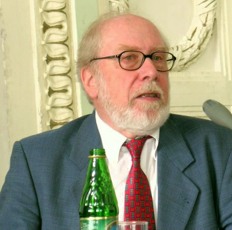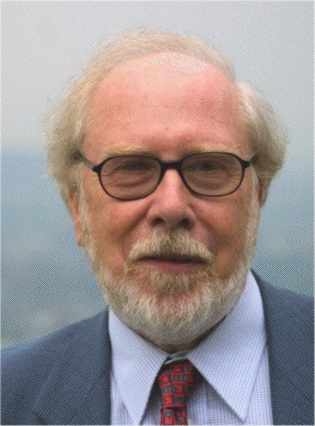| Niklaus Wirth Inventor Of Pascal For Teaching Computer Science |
| Written by Sue Gee |
| Monday, 15 February 2021 |
|
Today, Niklaus Wirth, best known for the Pascal language and as the author of "Algorithm + Data Structures = Programs" celebrates his 87th birthday. Niklaus Emil Wirth was born in Winterhur, Switzerland on February 15, 1934. He earned a his bachelor's degree in electronic engineering from ETH Zurich, where he would later become Professor of Informatics and be responsible for introducing the new discipline of Computer Science into the curriculum at the behest of the Swiss Government in 1968.
Niklaus Wirth in 2005 In this Computer Conversation with Charles Severance, recorded in 2021 Wirth explains how he invented Pascal because he needed it for teaching Computer Science, there being no suitable candidates available for this purpose. He also tells how ETH Zurich shared it with other universities using Pascal P, a portable version of the language. However, the breakthrough that propelled Pascal to being a widely used programming language came with the advent of the microcomputer. Whereas compilers for other languages cost thousand of dollars, Borland's Turbo Pascal, which was an integrated system with a text editor and debugger cost around $50. As Wirth puts it, this meant that Pascal: "spread into areas where people did not come loaded with bad pre-conceptions, they started learning programming from scatch and that's how computing was brought into homes and schools." Pascal, which was developed starting in 1969 and made its debut in 1972, wasn't Wirth's first computer language. He earned his PhD at the University of California, Berkeley where his thesis was titled "A Generalization of Algol" and led to the Euler. He resigned from the Algol Working Group when his proposal for an improvement to Algol 60 based on Euler was rejected. With Tony Hoare he continued to work on this and it became Algol-W which then became the basis for Pascal. During the 1970s Wirth participated in the IFIP Working Group on Programming Methodology, proposing the idea of stepwise refinement of code as a complement to the various visions of “structured programming” the group, including Edsger Dijksta and Tony Hoare put forward. This idea was elucidated in Systematic Programming (1973) which along with Algorithms + Data Structures = Programs (1975) are considered to among the most influential contributions to the literature on programming methods and concepts. The other language for which Wirth is known, Modula, was designed in the1970s as a language that could be used for concurrent/parallel programming. In 1980 he released Modula-2, a more general purpose extension of Pascal that included features that can be described in object-oriented jargon. In 1987 it was superseded by Oberon, a general-purpose programming language which features type extension.
Wirth received ACM's A.M. Turing Award in 1984 with the citations stating: For developing a sequence of innovative computer languages, EULER, ALGOL-W, MODULA and PASCAL. PASCAL has become pedagogically significant and has provided a foundation for future computer language, systems, and architectural research. In 1987 he was awarded the IEEE Computer Society's Computer Pioneer Award "for Pascal" and in 2004, he was made a Fellow of the Computer History Museum "for seminal work in programming languages and algorithms, including Euler, Algol-W, Pascal, Modula, and Oberon." He was inducted as a Fellow of the ACM in 1994 and in March 2018 he was interviewed by Elena Trichina for the ACM: This long interview has plenty more about Wirth's contributions over his long career. More InformationACM Turing Award Profile of Niklaus Wirth Related ArticlesThe Rise Of People Power - Computer Languages in the 1970's Towards Objects and Functions - Computer Languages In The 1980s To be informed about new articles on I Programmer, sign up for our weekly newsletter, subscribe to the RSS feed and follow us on Twitter, Facebook or Linkedin.
Comments
or email your comment to: comments@i-programmer.info |
| Last Updated ( Thursday, 04 January 2024 ) |




